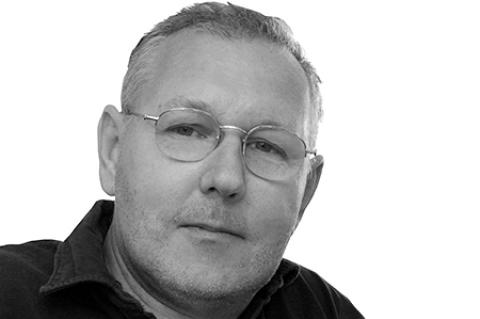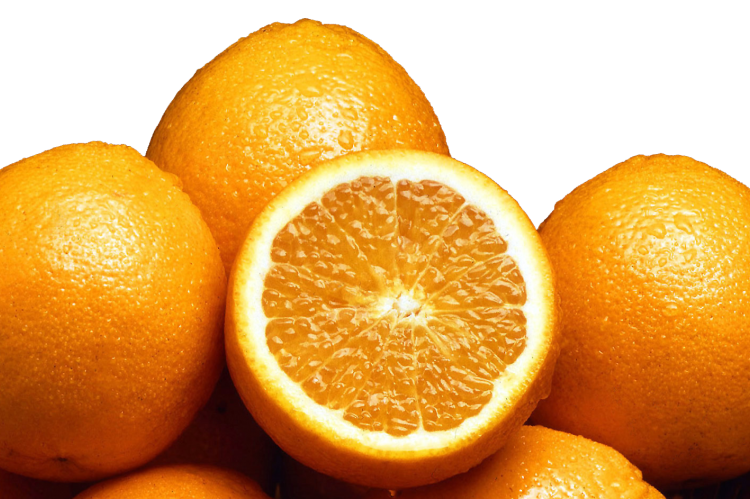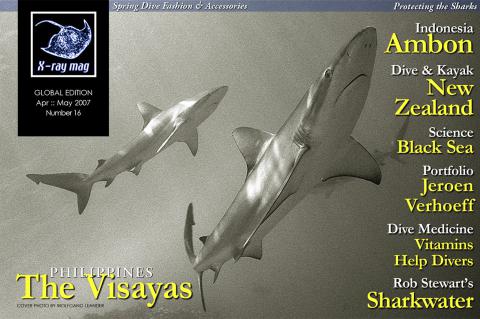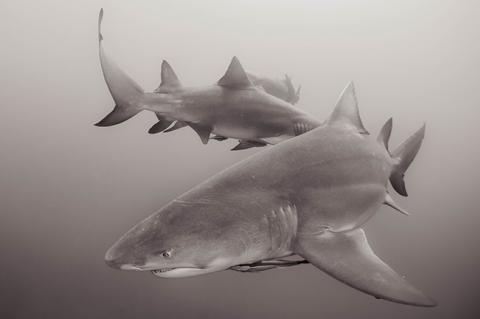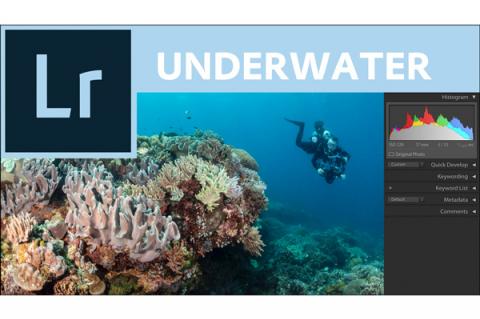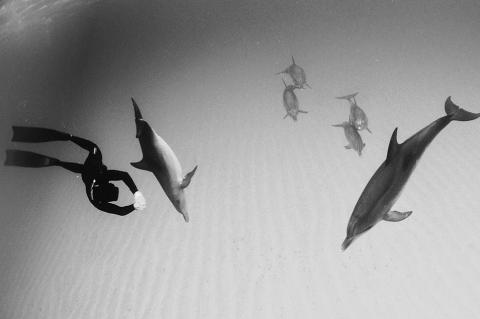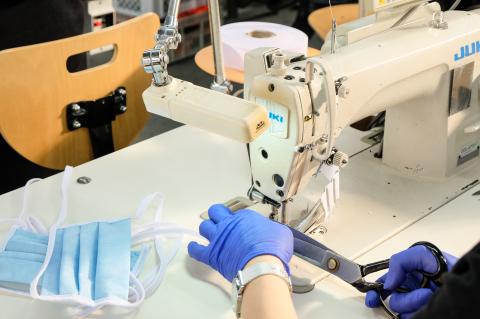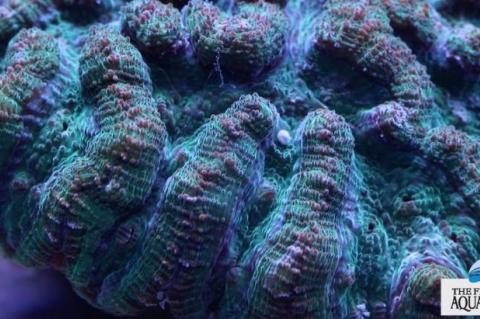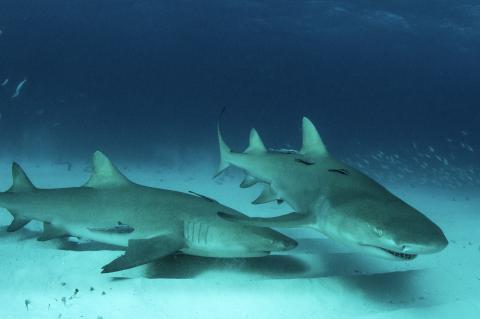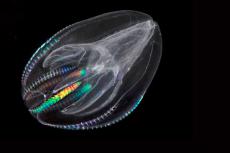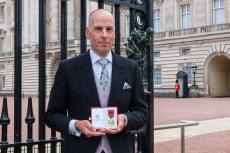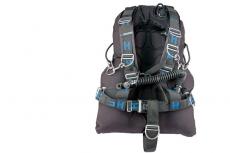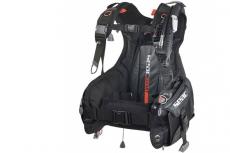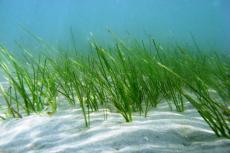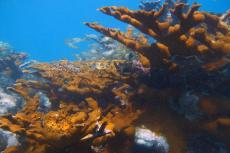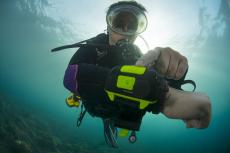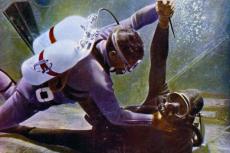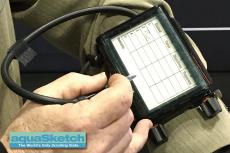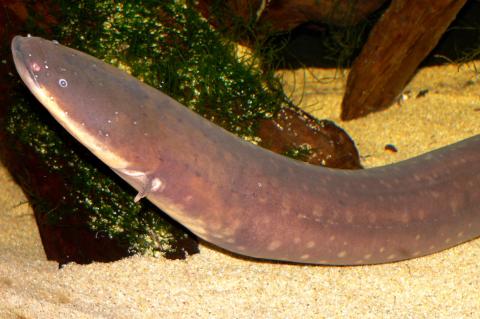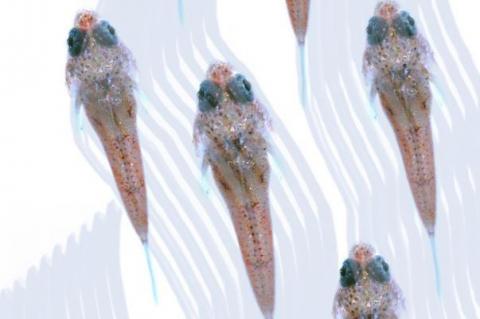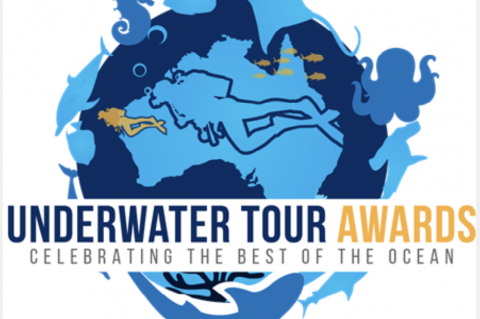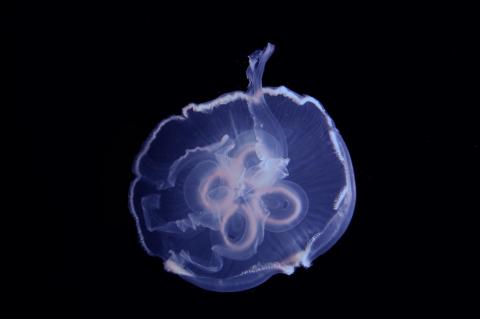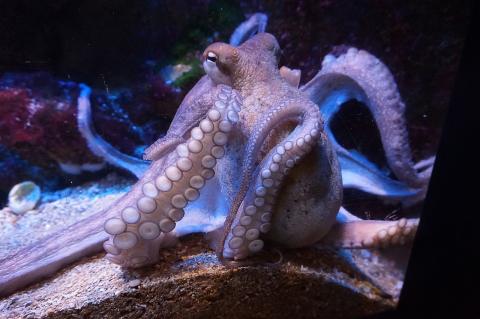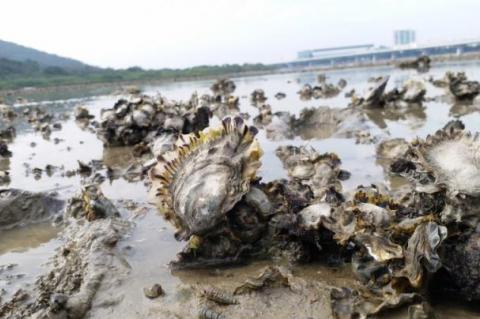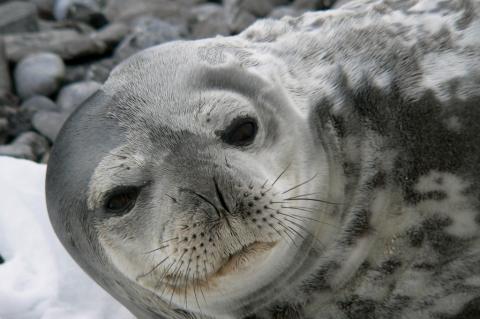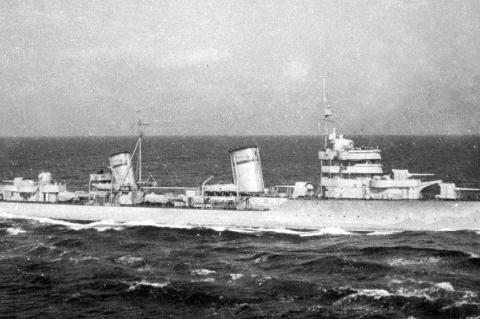Why Vitamins Protect Divers
Does diving produce free radicals? Can vitamins really protect divers from some the physiological effects of diving? X-Ray Mag’s own editor and medical doctor Andrey Bizyukin conducted a series of experiments to find out.
Tags & Taxonomy
You probably heard about free radicals, and why you should eat anti-oxidants to stay healthy. But have you heard of Reactive Oxygen Species? Chances are that you haven’t.
But to cite a well-known on-line dictionary: Reactive oxygen species (ROS) include oxygen ions, free radicals and peroxides both inorganic and organic. They are generally very small molecules and are highly reactive due to the presence of unpaired valence shell electrons. ROSs form as a natural byproduct of the normal metabolism of oxygen and have important roles in cell signaling. However, during times of environmental stress ROS levels can increase dramatically, which can result in significant damage to cell structures.
During times of environmental stress, huh? Does that include diving?
It is the cell enzymes that produces ROS during metabolism and it turns out that these molecules have several roles to play in the body. Firstly, they are modulators of the immune system, in other words, molecules which can intensify or weaken the immune response. And the very same molecules can, by virtue of their strong oxidizing powers, simply “kill” pathogenic microbes and viruses, destroy alien substances (antigens), or when the concentration gets too high, also harm the cells themselves by creating ulcers or abscesses inside of a living tissue or by starting allergic reactions.
Even for an experienced diving physician it is not so simple to understand all the subtleties. There is a normal quantity or production of ROS. If too little ROS is produced, the normal immune reaction does not develop, and the organism falls ill from even the most insignificant trifle. If too much ROS is produced, it first enhances the immune response, but then (if high production levels persist) it will start destroying the organism. Speak about a golden median!
Any technical diver breathes gas mixes, be it oxygen enriched (nitrox) or impoverished (hypoxic trimix). Either of these will surely influence ROS production and levels somehow. But how? And, in which direction is it going to be—for the better or worse? And if it is for the worse, what can a diver do to protect himself or herself from the negative effects of these molecules ....
Download the full article ⬇︎
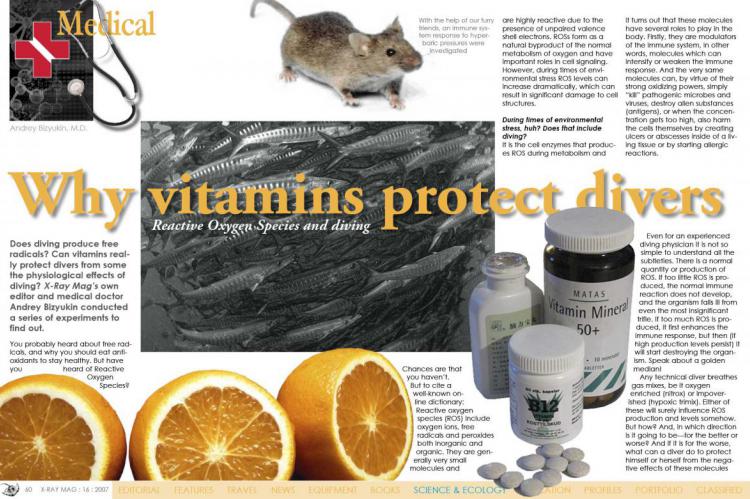
Originally published
X-Ray Mag #16
PHILIPPINES - Diving the Visayas. AMBON - the spice islands in Indonesia. Protecting the Sharks: Wolfgang Leander + Rob Stewart/Sharkwater movie. Divemedicine: Why antioxidants protects divers. NEW Zealand - land of the Kiwis. Rebreathers: Comfort and Efficiency. WHY shoot video. SPRING DIVE Fashion. Science: The Black Sea. New Equipment. Report from Moscow.

